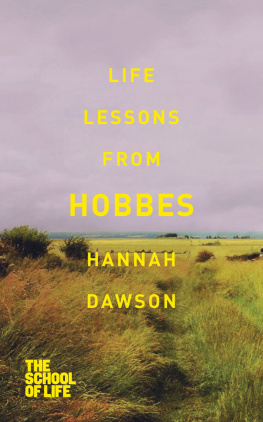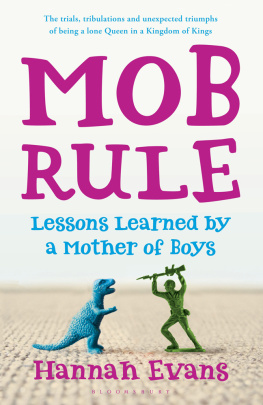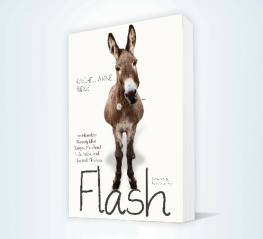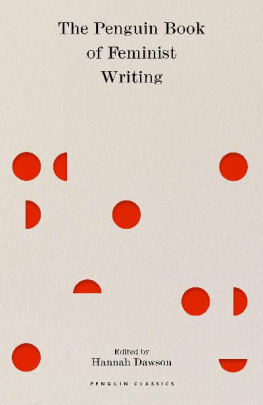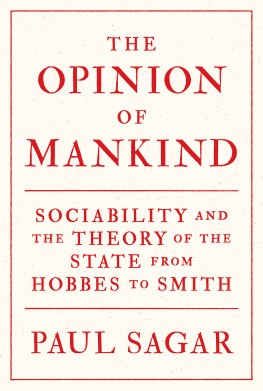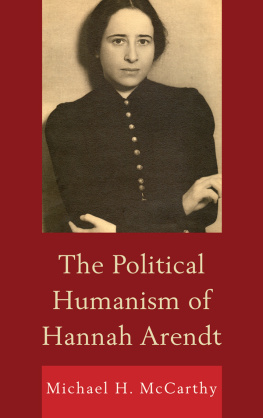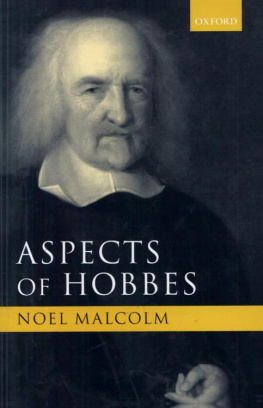Dawson Hannah - Life lessons from hobbes
Here you can read online Dawson Hannah - Life lessons from hobbes full text of the book (entire story) in english for free. Download pdf and epub, get meaning, cover and reviews about this ebook. City: Place of publication not identified, year: 2013, publisher: Macmillan, genre: Science. Description of the work, (preface) as well as reviews are available. Best literature library LitArk.com created for fans of good reading and offers a wide selection of genres:
Romance novel
Science fiction
Adventure
Detective
Science
History
Home and family
Prose
Art
Politics
Computer
Non-fiction
Religion
Business
Children
Humor
Choose a favorite category and find really read worthwhile books. Enjoy immersion in the world of imagination, feel the emotions of the characters or learn something new for yourself, make an fascinating discovery.
- Book:Life lessons from hobbes
- Author:
- Publisher:Macmillan
- Genre:
- Year:2013
- City:Place of publication not identified
- Rating:4 / 5
- Favourites:Add to favourites
- Your mark:
- 80
- 1
- 2
- 3
- 4
- 5
Life lessons from hobbes: summary, description and annotation
We offer to read an annotation, description, summary or preface (depends on what the author of the book "Life lessons from hobbes" wrote himself). If you haven't found the necessary information about the book — write in the comments, we will try to find it.
Life lessons from hobbes — read online for free the complete book (whole text) full work
Below is the text of the book, divided by pages. System saving the place of the last page read, allows you to conveniently read the book "Life lessons from hobbes" online for free, without having to search again every time where you left off. Put a bookmark, and you can go to the page where you finished reading at any time.
Font size:
Interval:
Bookmark:

To Dora and Ada Eatwell

Thomas Hobbes is a hated man. He said that it is in our nature to be at war with each other, and that we need an all-powerful government to terrify us into submission. He therefore seems to be both depressing cynic and totalitarian apologist, seeing the worst in humanity and prescribing a chilling solution, a cure far more horrible than the disease, a place where all individual freedom is crushed by the irresistible might of the State that great Leviathan, the beast of the deep green sea.
Why on earth, then, have I chosen him for this book? What could he, nasty, brutish Mr Hobbes, the Monster of Malmesbury, possibly have to teach us about how to live well? In a sense, it is precisely because of his gritty verdict on our human condition that we need to listen to him. While we do not want to let him take us all the way to the abyss of his authoritarian dystopia, we would do well to take note of his clear-eyed assessment of the psychological forces that pit us against one another, and the fact that, as uncomfortable as it is, we need to be restrained.
When I first read him at university, I was as awed as I was appalled. He made me ask certain fundamental questions which, I blush to remember, I had never really asked before. Why is it that human beings the world over tend to obey the law? What is the point of government? These are, Hobbes made me see for the first time, very odd phenomena. We are naturally free and equal, we do not as a rule like being told what to do, so what possible reason could we have for agreeing to be controlled by politicians, whose instructions chafe and who we do not generally like very much? Hobbes gives us the compelling answer: because it is in our interests. I can whistle about the streets or, indeed, in the office or at home, safe in the knowledge that I probably wont be hit or killed, in part at least because my would-be attackers are frightened of going to jail and therefore leave me alone. More broadly, there are a whole host of activities monetary transactions, renting a house, motorway driving, even having a party which are at a basic level dependent on the coercive apparatus of the State and the mutual trust and respect that this creates. This is the civilized and civilizing foundation without which the fantastically plural coordinations of society could not hope to get under way. It is on this foundation that I am free to make as much or as little of my life as I am able. This is why, Hobbes helped me to understand, I should obey and value government. As the first great social contract theorist, he shows us why we consent even tacitly to authority.
One might respond: most of us do not really consent to government. Even those who are lucky enough to line up at the polling booths every five years are participating in a mirage of democracy. The fact is that we are always under one government or another, and what we want seems often to bear very little relation to what they do. Far from choosing subjection, we are born into it, and so this tacit consent of Hobbess looks rather like no consent at all.
But Hobbes sees this too, indeed more acutely than most. He knows that we are animals and that, as in the law of the jungle, might makes right. I often think of this when I am cycling through central London and a huge red bus is bearing down on me. It ought to give way, but that matters not a jot to what we both do: it cuts me up and I break to a halt, stranded and choking in its black smoke, but alive. The rights and wrongs of the situation are irrelevant. The driver and I both know that he is immensely more powerful than me, and that I will bend to his will. I let him rule me. So too, America, or any other enormously superior alpha male, does pretty much what he likes, even if, unlike most bus drivers, he dresses it up in gentle words.
What is so thrilling about Hobbess analysis is that he sees the brute reality in the same breath as consent and agency. We are continually operated upon by all manner of circumstances and passions, but that does not mean that we are not free, that we do not have choices. In the case of government, the fact that some of us feel forced to obey, does not make it any less in our interests to do so, or indeed, any the less chosen. We all consent; its just that there is a vast attitudinal spectrum of permission. The unreflective ones, who go around as Hobbes says with a magnifying glass, who wince at every intrusion and demand of the State, consent with a heavy heart, out of fear of their oppressor. Whereas the enlightened, who have the binoculars of Hobbess civil science to see far down the chain of cause and effect to the incomparable horror of what life would be like without the State and who know therefore what is at stake they too consent out of fear, but in their case it is a fear of the war that would ensue without government to protect them. They consent therefore with a spring in their step. They know that they have been given an unnatural opportunity to pursue their dreams.
The lessons from Hobbes, however, go much further than the politics which have made him a household name. What he wants to teach us, in addition to how we can escape debilitating fear, is what it means to be free, and what it means to be good, to show us that even at our most rational we are pressed on by our desires, and that we must be ever watchful of the dangers of language and religion. Weaving its way through his philosophy is a deep sense, sometimes wretched, sometimes liberating, that, while we can and do reach out to other human beings, in the final analysis we are alone. Even if we violently disagree with Hobbes much or indeed most of the time, he can teach us to meditate more carefully than we are accustomed on the subjectivity, motivations and opinions which structure our lives.
Who was this man whose thoughts soared so high? According to his friend and admirer John Aubrey, who wrote about him in his wonderfully graphic Brief Lives, when Hobbes was deep in conversation his eyes shone, as if they had a bright live-coal within; when he laughed, was witty, and in a merry humour, they scrunched up so tightly that one could scarce see his eyes; and when by and by... he was serious and positive, they opened remarkably wide. This snapshot rings true to the intensely engaged and energetic personality that emanates from his writing, and is suggestive of the man who we know, from the dear friendships he nurtured throughout his long life, was as eager for sociability as he was for productive solitude.
Born in Malmesbury, Wiltshire, in 1588, Hobbes did not have a particularly auspicious start in life. His father was a drunken knave of a clergyman. Forced to flee his parish for punching a neighbouring vicar while Hobbes was at Oxford, he seems to have disappeared from his sons life for ever. Thanks, however, to the vista of opportunity which university opened up for men of modest backgrounds in those years, Hobbes spent most of his ninety-one years as tutor, secretary and retainer of the Cavendish family the rich earls of Devonshire and as a provocative citizen of the European philosophical republic of letters.
Indeed, for the main part of his extraordinarily long adult life, his attention and writing were focused not on politics, but on the so-called scientific revolution, that highly diffuse movement which self-consciously blew apart (though not without massive, often unacknowledged, continuities) the largely Aristotelian view of the world that had dominated the intellectual Establishment. Aristotle had suggested that the world was made up of matter on the one hand, and substantial forms on the other real, universal essences of substances such as men or horses which make them what they are. Hobbes was in the vanguard of the new philosophers who proposed instead a mechanical universe. This threatened to drive a wedge between appearance and reality: if there are no longer specific essences out there in the world for the mind to grasp but only various arrangements of substance, then the essences we perceive are made up by the mind rather than given by the world, and the qualities that seem to be in things (heat and colour, for example) in fact bear no resemblance to those things themselves. Hobbess approach took a particularly radical form: he was a materialist, and believed that
Next pageFont size:
Interval:
Bookmark:
Similar books «Life lessons from hobbes»
Look at similar books to Life lessons from hobbes. We have selected literature similar in name and meaning in the hope of providing readers with more options to find new, interesting, not yet read works.
Discussion, reviews of the book Life lessons from hobbes and just readers' own opinions. Leave your comments, write what you think about the work, its meaning or the main characters. Specify what exactly you liked and what you didn't like, and why you think so.

